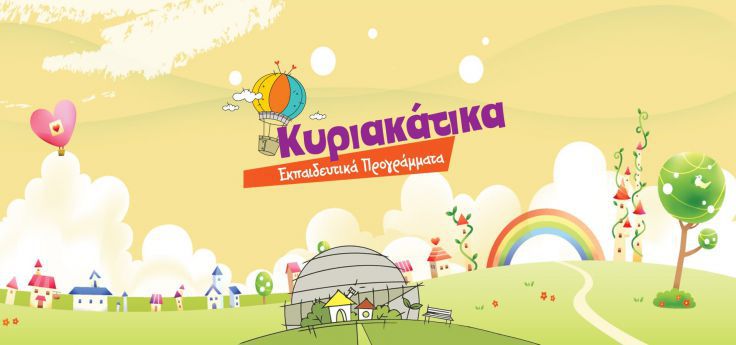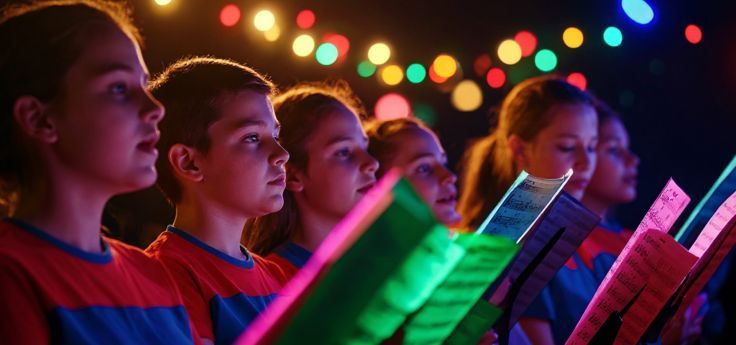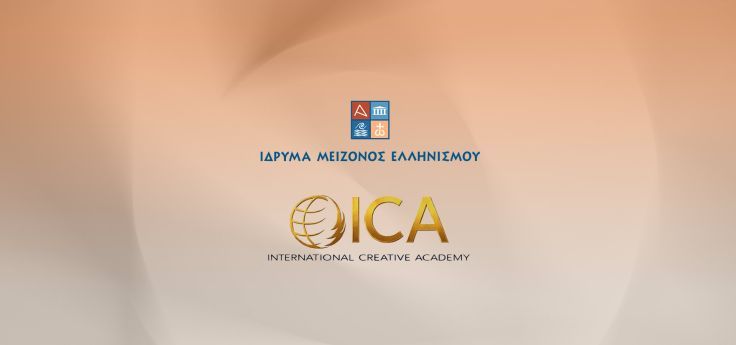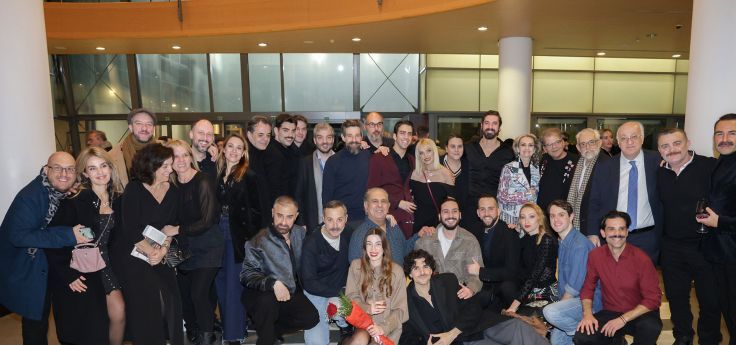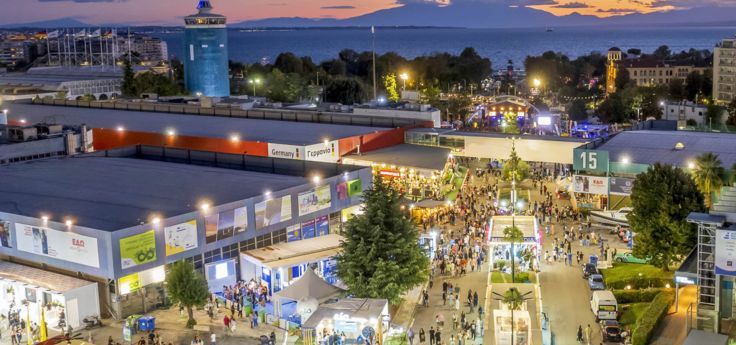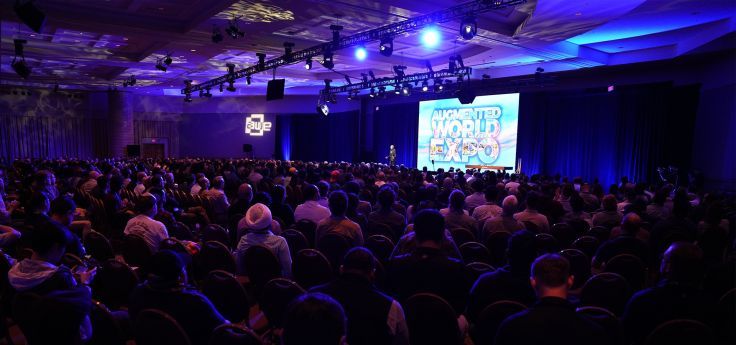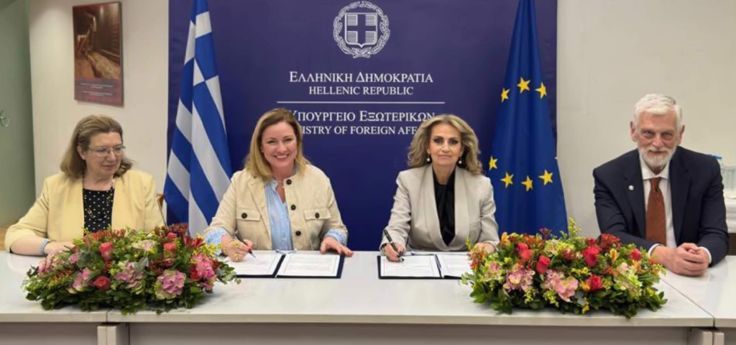Family educational programs for children aged 3-5 years, along with their parents. Experiential activities with themes inspired by mythology, the Greek diet, space, and prehistory.
Innovative Technology
The "Tholos" was designed as a Virtual Reality museum, which will host and make accessible to the general public the digital collections of the Foundation of the Hellenic World (IME). These collections are documents of high cultural value, as they are developed and organized based on an original and globally pioneering process of research, documentation, and visualization of historical and archaeological information.
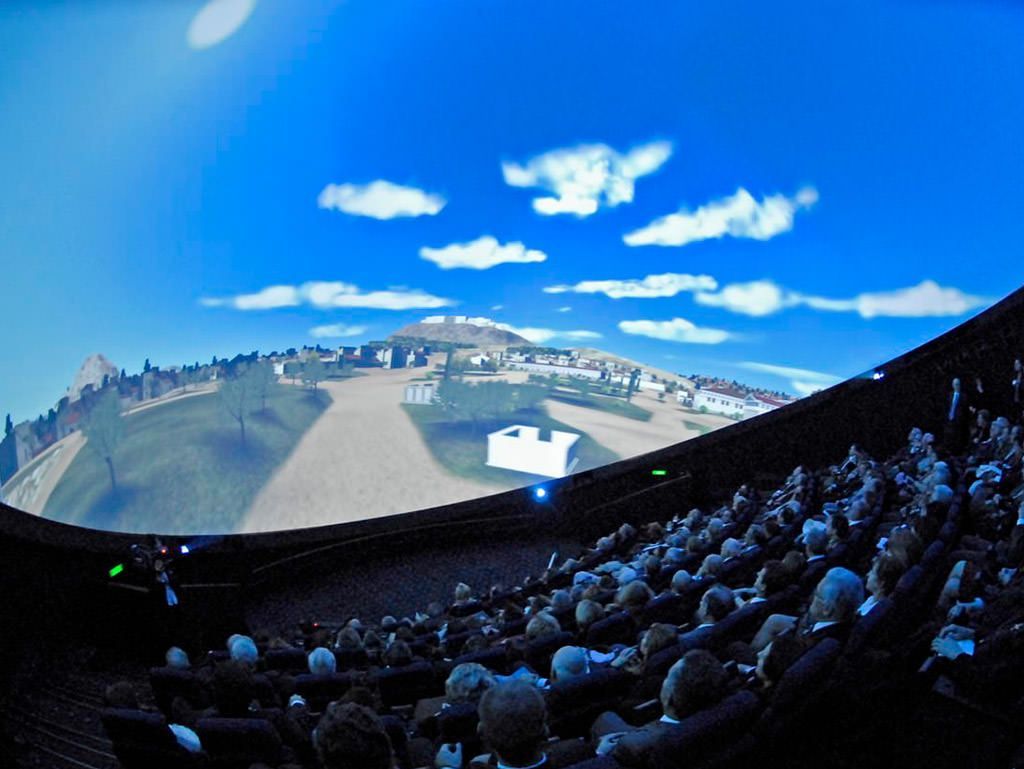
The uniqueness of the "Tholos" lies in its ability to project fully interactive content on the hemispherical projection surface, inclined at 23 degrees. It thus constitutes a unique large-scale Virtual Reality infrastructure. The content projected in the "Tholos," as well as in IME's existing smaller Virtual Reality systems, the "Ark" and the "Magic Screen," is not "pre-recorded," but thanks to its digital infrastructure, it has flexibility and vitality. This significant difference is due to the fact that the primary mechanism for creating and projecting in the digital "Tholos" is very powerful arrays of computers, which generate the projected images in real time, using the visualized information already produced by IME.
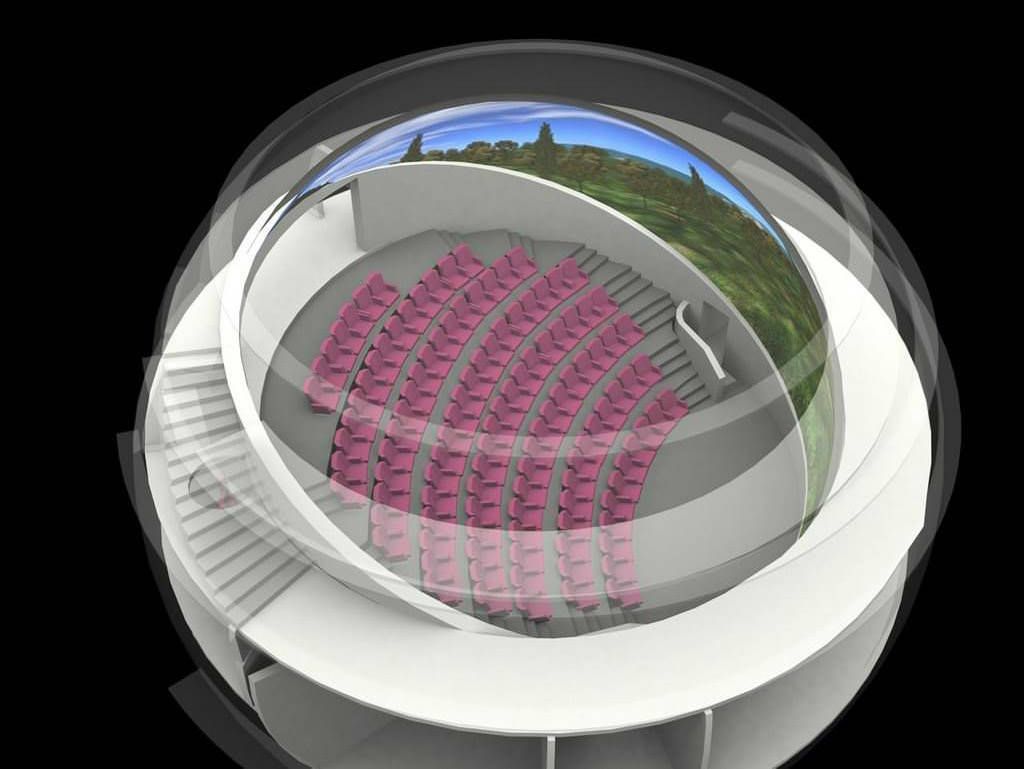
A major advantage of this method is the ability to "create" photorealistic reproductions of places, buildings, monuments, and even people that exist only in the imagination of their creators or the researcher architects, historians, and archaeologists who have been trying for decades to describe and reproduce them with sketches in two dimensions, based on their ruins and the sources that have been preserved. As a result, endless alternative touring scenarios are created in the same virtual model, which evolve at the moment of the tour, and the visitor has the opportunity to navigate in real time. Besides the fact that this medium can also be used by creators or producers for a multitude of other purposes and applications, it also has the ability to incorporate and display any kind of digital content in the three-dimensional space: from videos and pre-processed digital projections to Internet websites.
The superiority of the "Tholos" lies in its dual ability to create the sense of "immersion" in the virtual space, i.e., the feeling that we are really there, as well as interactivity with the virtual space and the objects that constitute it. The audience is no longer just a spectator in a realistic scenography but can actively participate in the program and even determine its own experience. Since the images they see are not predetermined or "pre-recorded", but are generated in real time, the audience can interact with the space and accordingly determine the behavior of the virtual space.
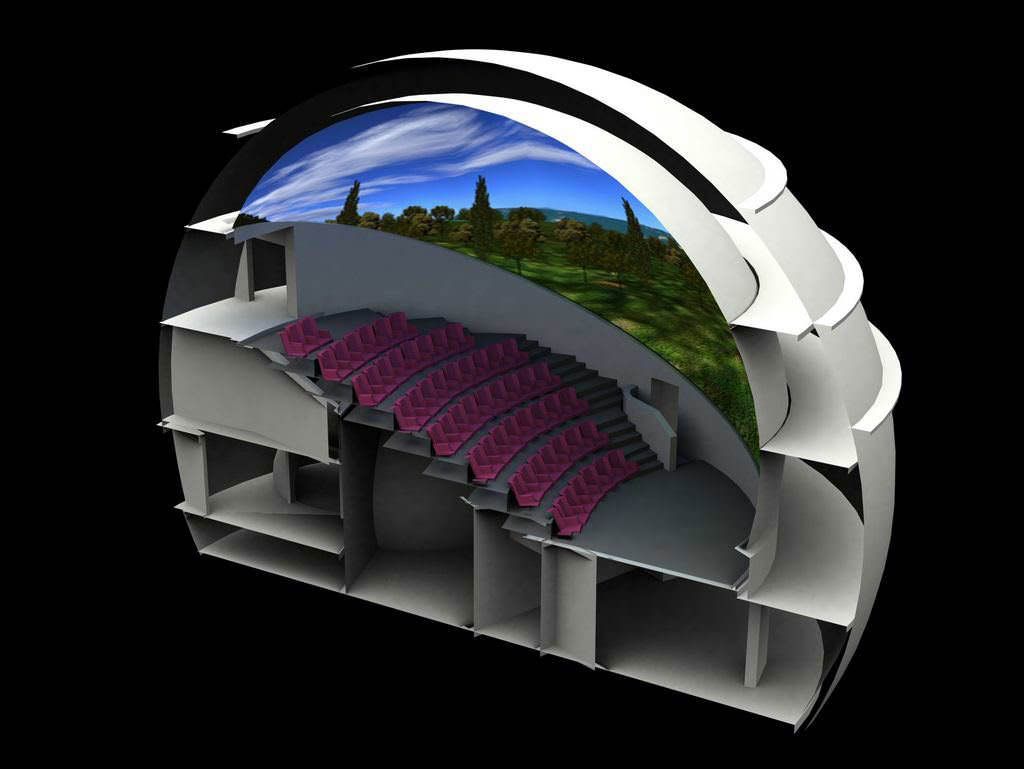
A global innovation in the "Tholos" is the ability it provides for full stereoscopic projection on the entire surface of the screen, using 12 projectors and special stereoscopic glasses, thereby enhancing the sense of immersion and providing additional interaction possibilities. Naturally, the projection on the concave hemispherical surface, even without the use of the stereoscopic capability, creates a three-dimensional sensation. The possibilities of combining and alternating them, in conjunction with interaction scenarios, make the "Tholos" a unique project worldwide.
Another innovation is the ability of the "Tholos" to integrate in real-time interaction between virtual and real elements, and especially presenters and performers, using special motion capture and modeling technologies. This capability brings the performing arts closer to Virtual Reality and multiplies the audience's sense of immersion, as well as the educational and expressive uses of the medium.
The "Tholos" features state-of-the-art 7.1 cinema-quality sound systems, as well as all related control systems.
The Experience
In order for the viewer's eye to adjust to the dark environment of the main projection hall, they first pass through a semi-dark space, where for 5-10 minutes they watch a multimedia presentation from multiple screens, during which they receive information about the "Tholos", the presentation they are about to see, or the project and the digital representation itself.
![]()
The construction and equipment of the Tholos was funded under the Attica operational program of the 3rd CSF,
(50% National resources 50% European Regional Development Fund)
Don't Miss Out!
Educational Programs
The "Hellenic Cosmos" Cultural Centre offers Educational Programs for children aged 5 to 8, which are designed and implemented by the Museum Education – Educational Department and take place in all fully equipped indoor and outdoor areas of the "Hellenic Cosmos".
The choir of the Foundation of the Hellenic World invites children and teenagers aged 8 to 18, who love music, to become part of a vibrant community of sound, expression, and joy under the guidance of music educator Matthia Spitadaki.
The “Hellenic Cosmos” welcomes the new school year with new educational programs and activities that cater to all age groups. The programs are designed and implemented by the Museum Educators Department. Children are encouraged to collaborate, observe, investigate, and create.
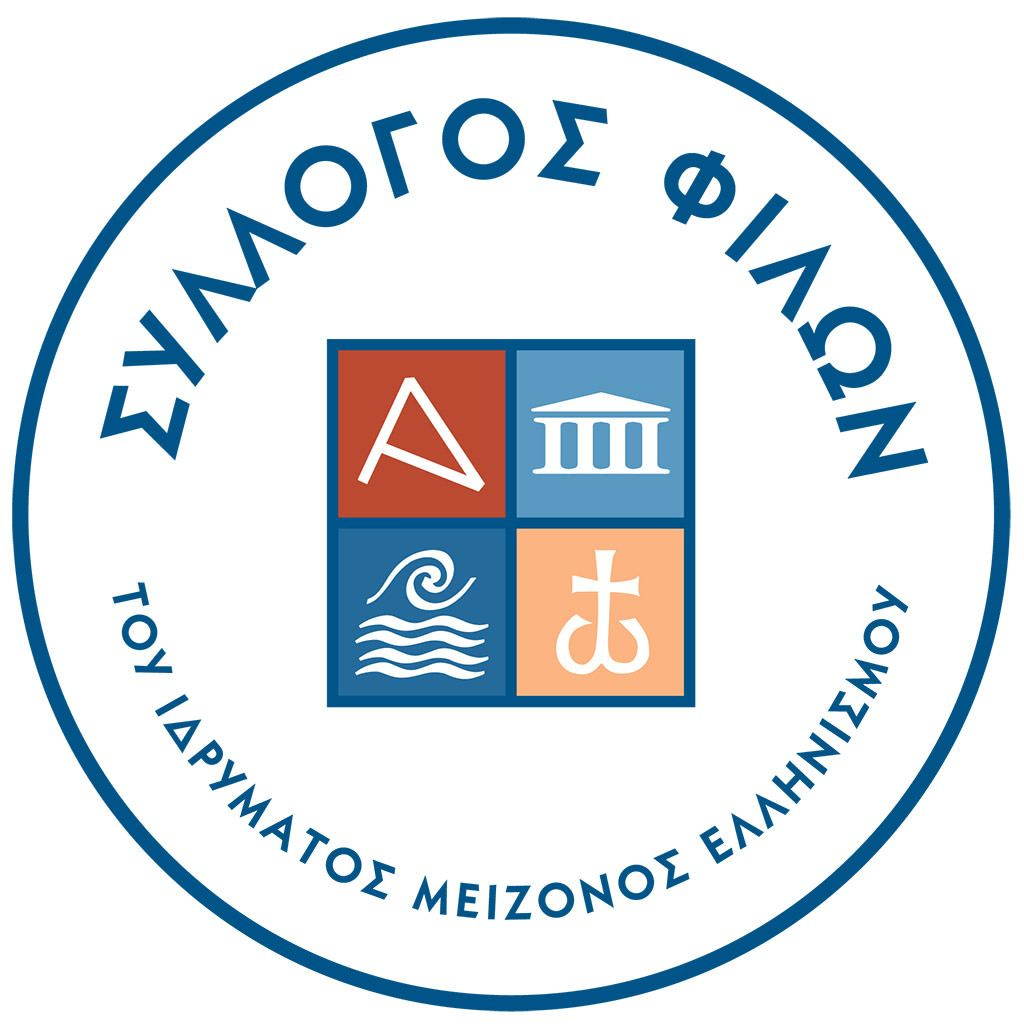
Friends Association
Become a Volunteer at the «Hellenic Cosmos» Cultural Centre!
READ
Latest News
& Announcements
Stay informed about all the events and news of the "Hellenic Cosmos" Cultural Center
Signing of a Memorandum of Cooperation between the Foundation of the Hellenic World and the International Creative Academy of Egypt
A Memorandum of Cooperation was signed between the Foundation of the Hellenic World and the International Creative Academy (ICA) of Egypt, with the aim of collaboration in the fields of creative industries, cultural innovation, and education.
Official Premiere of the Performance “Our Great Circus” by Iakovos Kambanellis
On Monday, January 19, the official premiere of the historically significant work “Our Great Circus” by Iakovos Kambanellis took place, with music by Stavros Xarchakos and directed by Petros Zoulias. The play follows, in a dramatic yet humorous way, the course of Greek history, accompanied by deep emotion and numerous historical references.
Signing of a Memorandum of Cooperation between the Foundation of the Hellenic World and EKKOMED - Creative Greece for the development of joint actions in the field of digital games and creative technology
The Foundation of the Hellenic World and the Hellenic Center for Cinema, Audiovisual Media and Creation - Creative Greece signed a Memorandum of Cooperation defining the framework of their joint actions in the field of digital games, creative technology, and immersive emerging technologies. The Memorandum was signed by Ms. Sofia Kounenaki Efraimoglou, Executive Vice President of the Board of Directors of the FHW, and Mr. Leonidas Christopoulos, CEO of HCCAMC – Creative Greece.
The Foundation of the Hellenic World participates in the 89th Thessaloniki International Fair
The Foundation of the Hellenic World takes part in the 89th Thessaloniki International Fair, which takes place from September 6 to 14, 2025. The FHW, as the first institution to use new technologies and virtual reality for the promotion and dissemination of culture, welcomes the public at Pavilion 17, Stand 19 and invites you to explore some of the innovative applications it has developed, as well as the latest projects in which it participates.
The Foundation of the Hellenic World participates in the leading Extended Reality exhibition, Augmented World Expo
The Foundation of the Hellenic World, as a pioneering organization in the utilization of new technologies in the field of culture, is participating in the internationally recognized Extended Reality exhibition, Augmented World Expo, which is taking place in the United States of America. This participation marks another significant step in the promotion and dissemination of the rich Greek cultural heritage to a global audience.
Signing of a Memorandum of Cooperation between the Foundation of the Hellenic World and the General Secretariat for Greeks Abroad and Public Diplomacy of the Ministry of Foreign Affairs
A Memorandum of Cooperation aiming to promote Greek tradition, Greek culture and history, Greek language education, as well as the Greek creative sector, was signed on Wednesday, June 4, 2025, at the Ministry of Foreign Affairs, by the Secretary General for Greeks Abroad and Public Diplomacy, Maira Myrogianni, and the Executive Vice President of the Board of Directors of the Foundation of the Hellenic World, Sofia Kounenaki Efraimoglou, in the presence of the Deputy Minister responsible for Greeks Abroad, Yiannis Loverdos.



